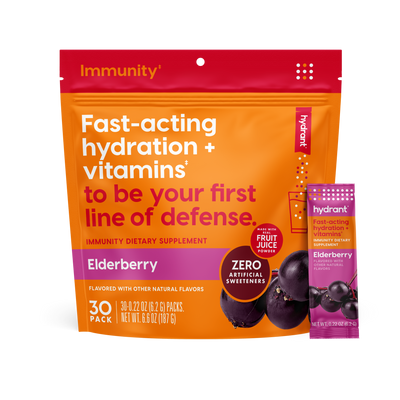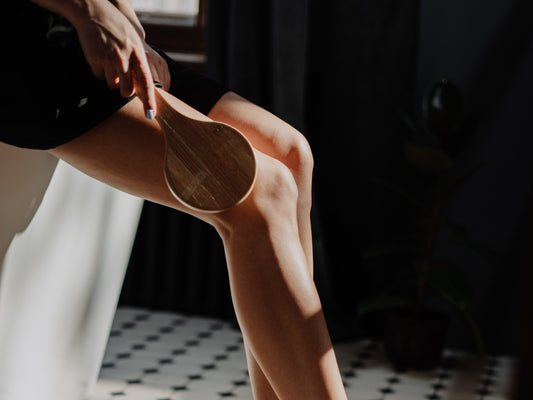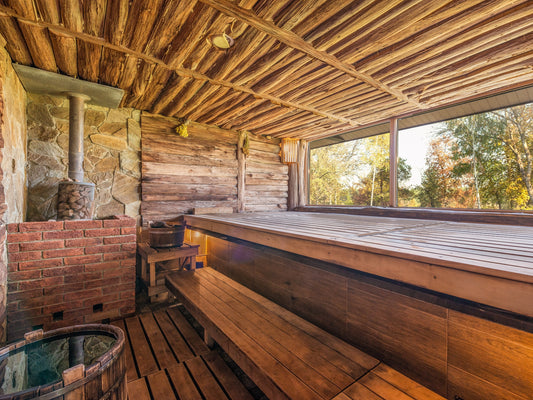A recent survey revealed that 47 percent of Americans consider their skin to be their greatest insecurity [1].
Does this resonate with you? Are you concerned about the health or appearance of your skin? If so, you might want to think more about your hydration and water intake.
What does water do for your skin? Read on to find out!
Benefits of Hydration for Skin Health
Our bodies are up to 60 percent water, so it makes sense that proper hydration would be essential to our health and well-being [2]. There are a few different ways that hydration can affect the skin, specifically, including the following:
Improved Skin Tone
If you struggle with mild hyperpigmentation (dark spots and uneven coloring), you might benefit from focusing on hydration.

Upping your water intake may be linked to more even-looking skin and less discoloration. One study showed that drinking two cups of water helped to increase blood flow and circulation. This, in turn, led to a more even skin tone aka that “glow” many beauty blogs covet and rave about [3].
Fewer Breakouts
If you’re dehydrated, you might also be more prone to acne than those who have a higher fluid intake. When you don’t drink enough water, your skin (which is 70-75 percent water), will likely be drier [4]. Thus, if your skin is dry, there’s a chance that your body will produce more oil to dry and balance things out. This, in turn, can lead to more clogged pores and more breakouts [5].
Less Visible Signs of Aging
In addition to increasing breakouts, dehydration and dry skin may also cause your skin to show signs of aging sooner than it normally would. This is because dry skin is more prone to aging signs like sagging, fine lines, and wrinkles [6].
Less Itching
If your skin is dry, you might also notice that it’s itchier and more prone to redness and flakiness [7]. Drinking more water and focusing on hydration may help to minimize this issue, particularly for folks who are prone to dryness.
Better Digestion
Hydration can help to improve digestion, too [8].
At first, you might be confused about what good digestion has to do with healthier skin. The short answer, though, is “a lot.”
Poor hydration can lead to bloating and constipation. If you’re constipated, your body is not going to move waste products out (or detoxify itself) as efficiently as possible.
Poor detoxification, in turn, may lead to increased breakouts and other skin issues. In fact, one study revealed that 40 percent of people with acne also experienced constipation on a regular basis [9].
Signs of Dehydration
Clearly, hydration matters to the health and quality of the skin. How do you know if you need to make hydration more of a priority?
Here are some of the most common signs of dehydration to watch for [10]:
- Dark yellow or amber-colored urine
- Decreased urine production
- Dry mouth
- Bad breath
- Swollen tongue
- Fatigue
- Increased sugar cravings
- Headaches
In severe cases, dehydration can also lead to symptoms like dizziness, confusion, or fainting.
Tips for Staying Hydrated
The best way to combat dehydration? Stay hydrated. Sounds easy enough, right? But in practice, properly hydrating can sometimes feel like a chore or is the first thing to go when we’re stressed or our mind is elsewhere. We’ve gathered some suggested tips to make it easier to help you stay hydrated:
Set a Hydration Goal
Maybe you suspect that you need to drink more fluids and take your hydration more seriously. You might also be wondering how many cups of fluids you should aim for per day, though.
According to a report from the U.S. National Academies of Sciences, Engineering, and Medicine, a good goal is to aim for 11.5 cups of fluids (about 2.7 liters) per day for women and 15.5 cups (about 3.7 liters) for men [11].
If 11.5 or 15.5 cups per day seems impossible, remember that you don’t have to go from zero to 100 right away. Start by increasing by just one or two cups per day, then add another cup after a week or so.
Carry a Water Bottle
You’ll likely have an easier time hitting your hydration goal, whatever you decide it is, if you carry a water bottle with you. Look for a high-quality reusable water bottle and keep it on hand throughout the day. This might feel a little strange at first. Pretty soon, though, it’ll start to feel like an extension of yourself, and you’ll feel like something is missing if you don’t have it with you!
Set Timers
Another option is to set regular timers on your phone or watch to remind you to drink. This can be especially helpful if you’re not in the habit of drinking water throughout the day, or if you find that you get so busy at work or home that you forget to drink regularly.
Add Flavor
If plain water doesn’t appeal to you, try adding flavor with fresh fruit or herbs. Cucumbers, limes, and mint leaves are all great ways to spruce up your water and enjoy some extra micronutrients.

Lemons are another great addition to your water that can offer other skin health benefits. What does lemon water do for your skin? Lemons contain antioxidants, such as vitamin C, which help stop cell damage and slow down signs of aging [12].
Add Electrolytes
When it comes to hydration, it’s not enough just to drink lots of fluids. It’s also important to make sure you’re getting enough electrolytes.
Electrolytes are minerals that are electrically charged [13]. They help to promote proper hydration and carry out a variety of other processes in the body, aiding in everything from heart health to muscle contractions.
Adding an electrolyte drink mix to your water (like Hydrant!) is an easy way to make sure you’re getting a sufficient amount of electrolytes like magnesium, sodium, and potassium. These mixes improve the flavor of your water, too, if you find that you don’t like the taste of plain water.
Eat Hydrating Foods
Keep in mind, you can also hydrate yourself with foods that have a high water content. The following are some of the most water-rich foods you might want to add to your diet on a regular basis [14]:
- Cucumbers
- Lettuce
- Celery
- Tomatoes
- Zucchini
- Watermelon
- Strawberries
Keep these foods on hand for easy, healthy, and hydrating snacks or side dishes. You can always toss them in your water, too!
Top Products for Hydrated Skin
As you can see, focusing on hydration from the inside out is one of the most effective ways to promote clear, glowing skin. However, there are also some products you can use as well to give your skin an extra boost.
Two popular products for hydrated skin are rose water and micellar water.
What Does Rose Water Do for Your Skin?
Rose water is a popular skincare product, and lots of beauty gurus swear by it. It’s made from rose petals that have been distilled with steam.

Here are some of the top benefits rose water can offer your skin:
Reduced Redness
If you notice a lot of redness in your skin, or if your skin tone is uneven, rose water might be helpful. This likely has to do with rose water’s anti-inflammatory properties. Applying it to your skin may be soothing and help to bring down redness or irritation [15].
Increased Antioxidants
Rose water contains antioxidants that can help soothe your skin, too [16]. The antioxidants in rose water may reduce cellular damage and slow down signs of aging to improve skin health and appearance.
Faster Healing
The antioxidants in rose water may help to speed up wound healing, too [17]. If you have scars or other skin imperfections, you might benefit from including rose water in your skincare regimen. Since it’s such a gentle product, it likely will not exacerbate your symptoms.
What Does Micellar Water Do for Your Skin?
Micellar is another well-loved option. It combines purified water with glycerine and mild surfactants for gentle cleansing and moisturization.
Micellar boasts the following benefits for skin health and hydration:
Increased Skin Hydration
If you have concerns about dry skin, micellar water can be a great tool to include in your skincare regimen. Micellar water does an excellent job of hydrating the skin. This likely has to do with the fact that it contains glycerin, which has been shown to be extra-hydrating [18].
Reduced Skin Irritation
When your skin is well moisturized, it will likely be less prone to irritation and redness. It gently cleanses and doesn’t appear to be problematic for people with skin conditions like rosacea [19].
Fewer Breakouts
Micellar water is gentle and doesn’t contain harsh ingredients, but it still is an effective cleanser, especially for folks who are acne prone. It can help clear the pores and get rid of dirt and debris that may contribute to breakouts [20].
Add Proper Hydration to Your Skincare Routine Today
Are you ready for clearer, brighter skin? If so, it’s time to step up your hydration game.
Give the tips and product recommendations listed above a try today. Be patient, be consistent, and you’ll be well on your way to great looking (and great feeling) skin!















